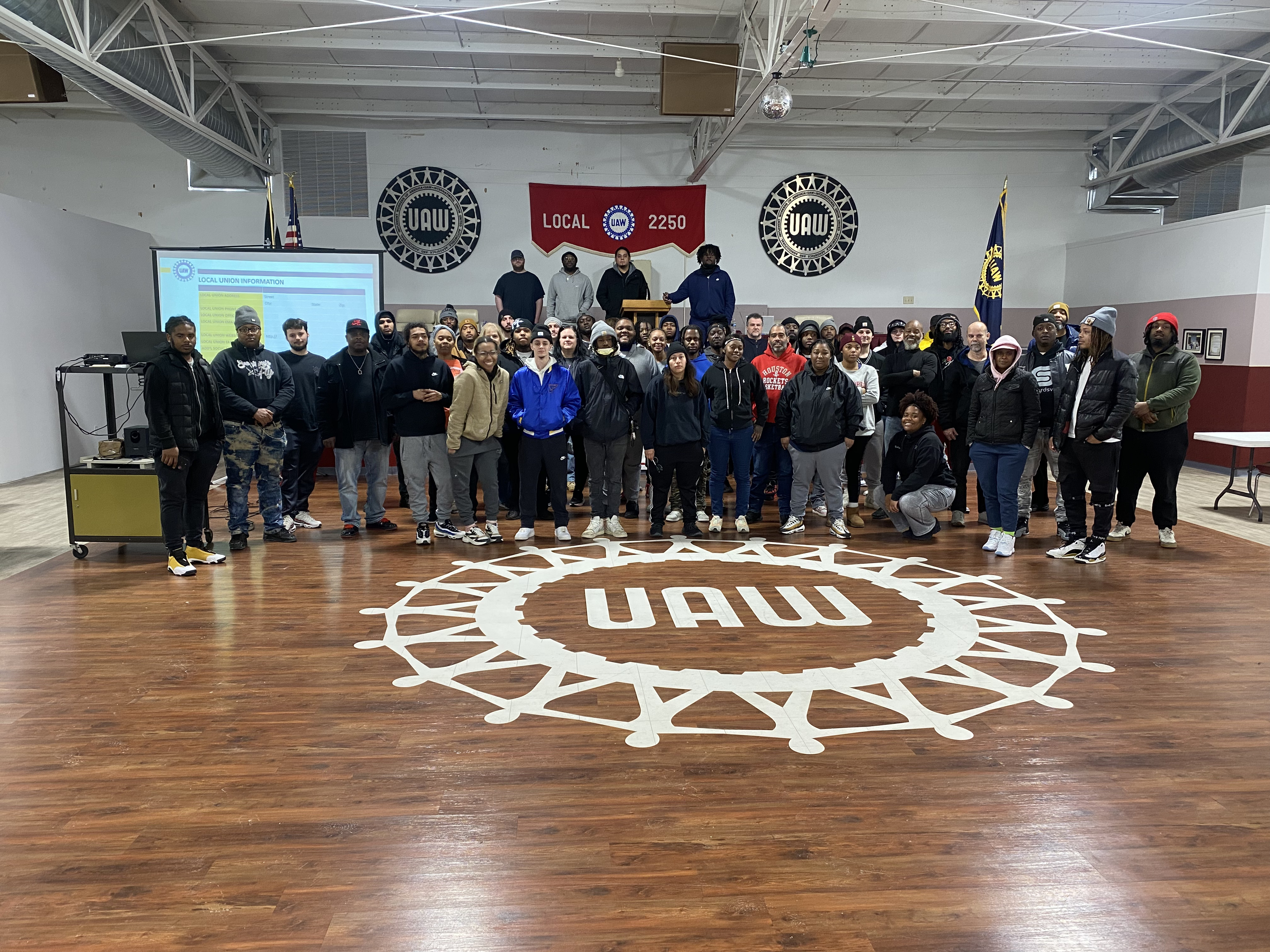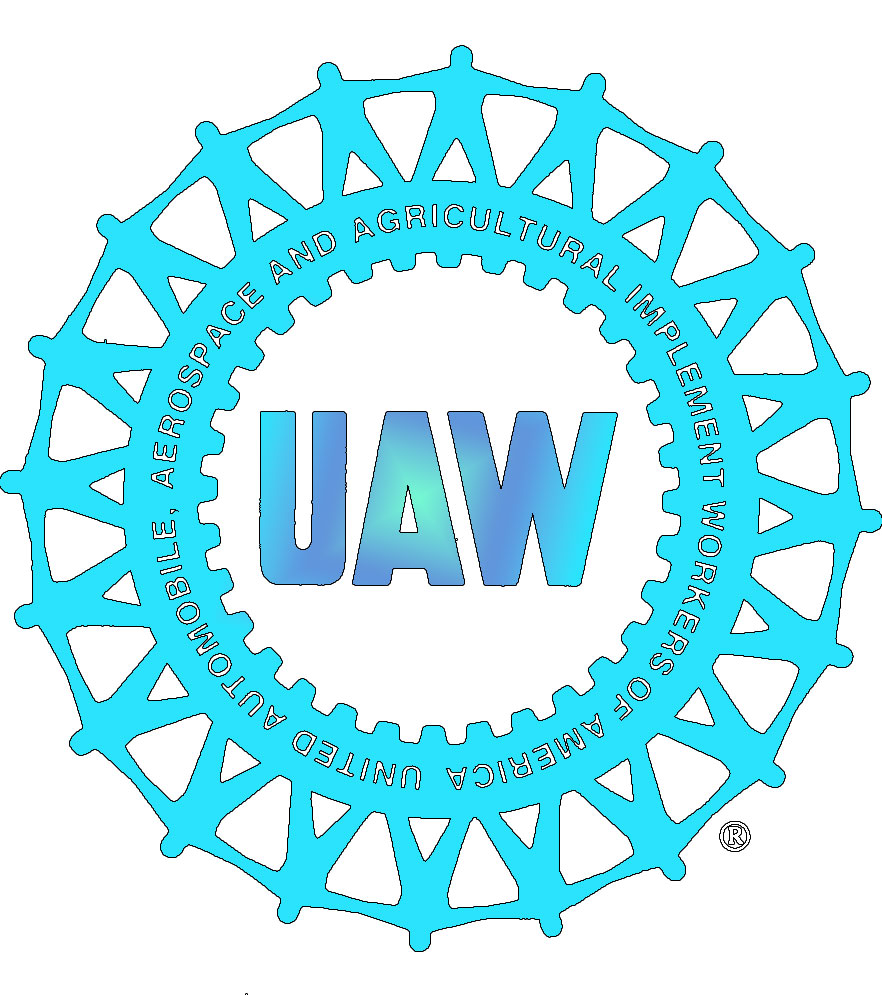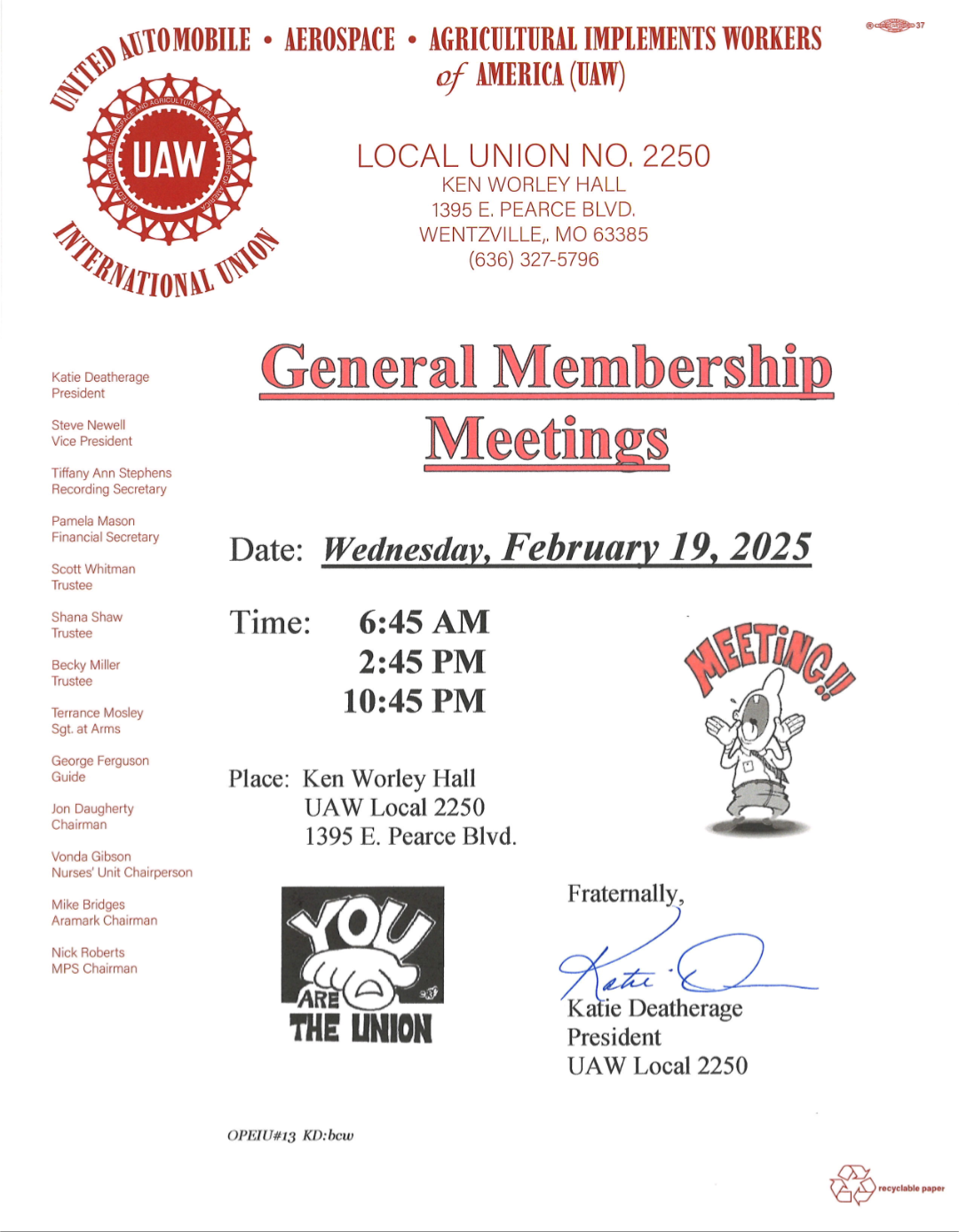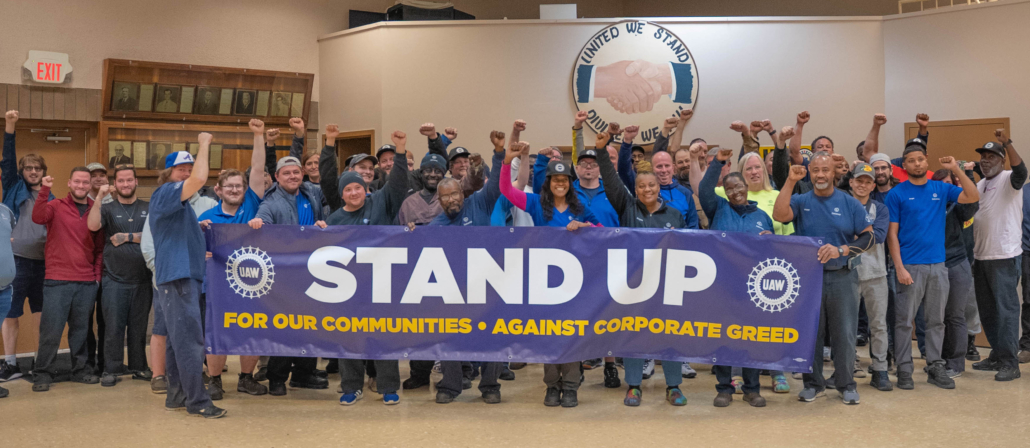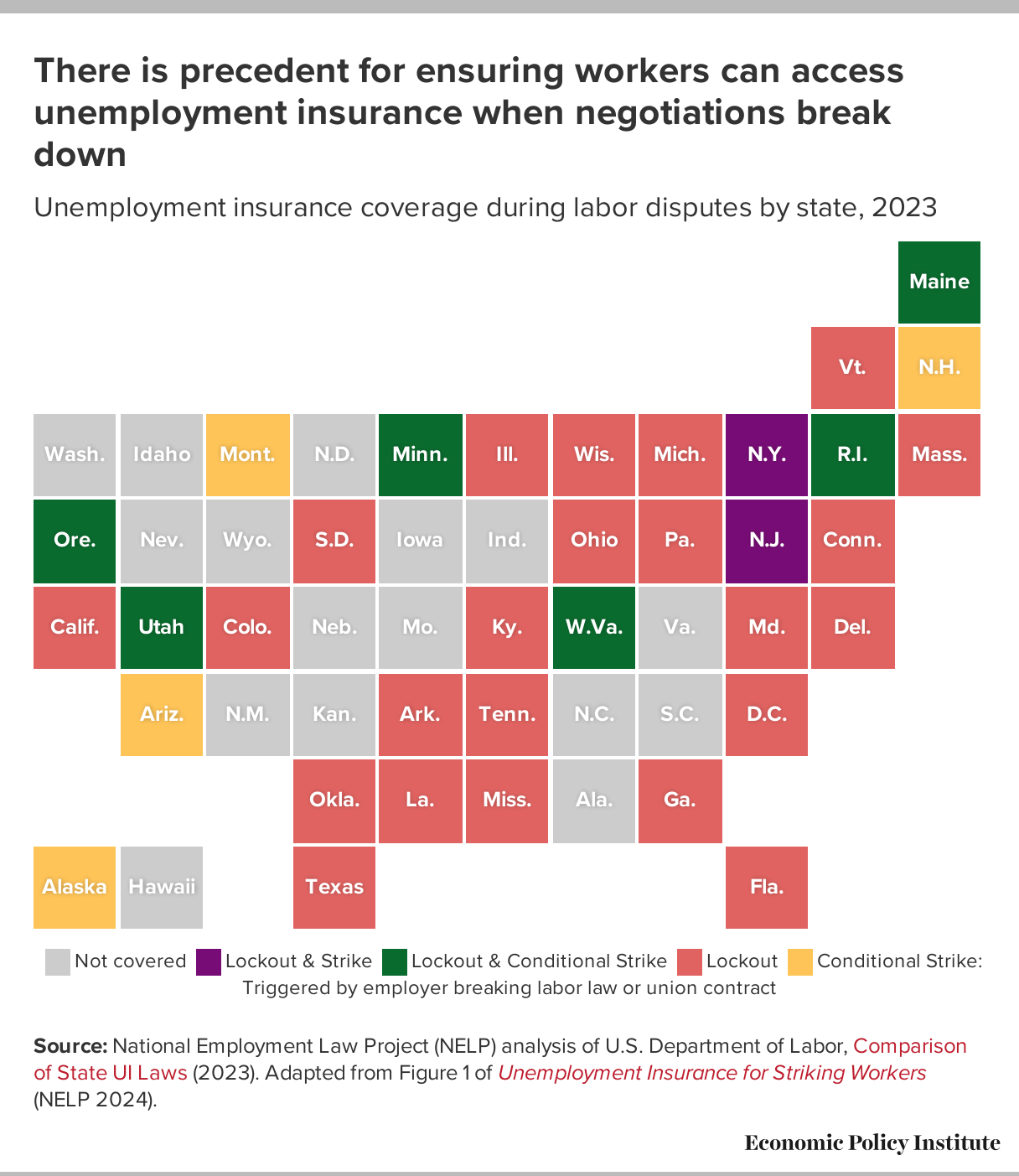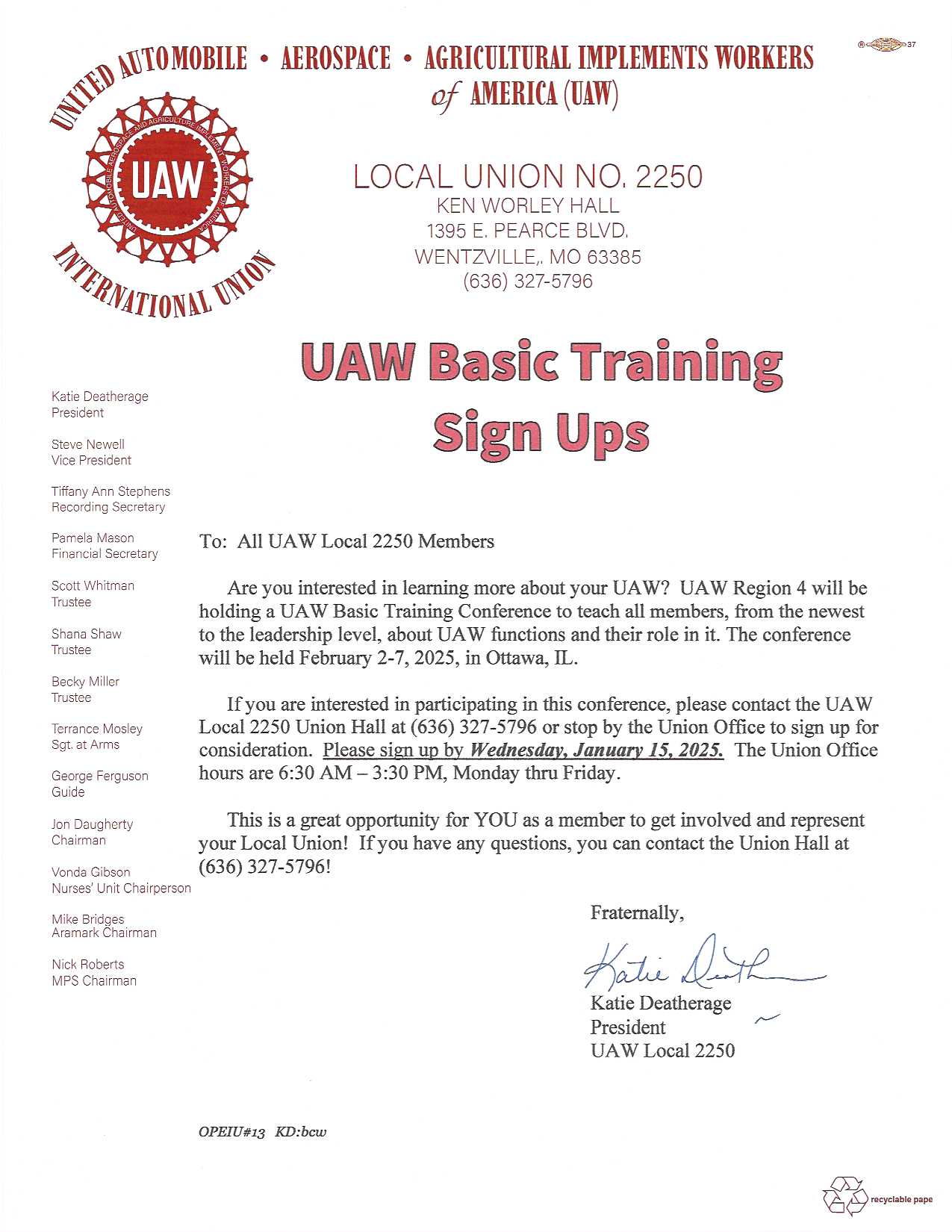-
Someone Is Trying To Change The Paid Leave You Voted For… - 21 hours ago
-
Get Your Newsline Here! - 2 days ago
-
Welcome 61 New Members to UAW Local 2250! - February 20, 2025
-
Great Read: How UAW Benefits Shaped An Immigrant Family - February 20, 2025
-
Cool 2250 Members Make The News! - February 19, 2025
-
White Shirt Day: What It Means To You - February 18, 2025
-
This Week’s Missouri AFL-CIO Labor Report - February 16, 2025
-
Could You Use a $5000 Scholarship? Alliance Credit Union Can Help - February 15, 2025
-
Membership Meeting Next Wednesday! - February 15, 2025
-
Can You Believe That News Story? Find Out Here - February 12, 2025
Sunday Studies: Project 2025 Would Cut Overtime Pay
The Center for American Progress has analyzed the overyime provisions in Project 2025, a conservative action plan on public policy assembled by the Heritage Foundation. Project 2025 Would Cut Access To Overtime Pay has the details…
Project 2025 allows employers to pick and choose time frames to measure work hours
What Project 2025 says: “Congress should provide flexibility to employers and employees to calculate the overtime period over a longer number of weeks.”
What the research says: Providing employers with less clarity about their wage obligations introduces more opportunities for fraud, abuse, and even honest mistakes. Currently, overtime is calculated weekly, which allows workers to keep track of their time accurately over a shorter time frame and to have more consistent expectations for their schedule. But Project 2025 proposes allowing the employer to choose the time period, giving employees less control of and visibility into their own paychecks.
Overtime eligibility and access are already among the most common forms of wage theft and other violations of the law by employers. From 2013 to 2023, overtime violations accounted for 82 percent of back wages for Fair Labor Standards Act violations—which cover minimum wage, overtime, retaliation, and tip theft by employers. Most violators of these laws face minimal consequences. A system rife with abuse needs clearer guidance and more enforcement, not additional “flexibility” for employers to decide who gets overtime pay and when.

(graphic by Maine Center for Economic Policy)



